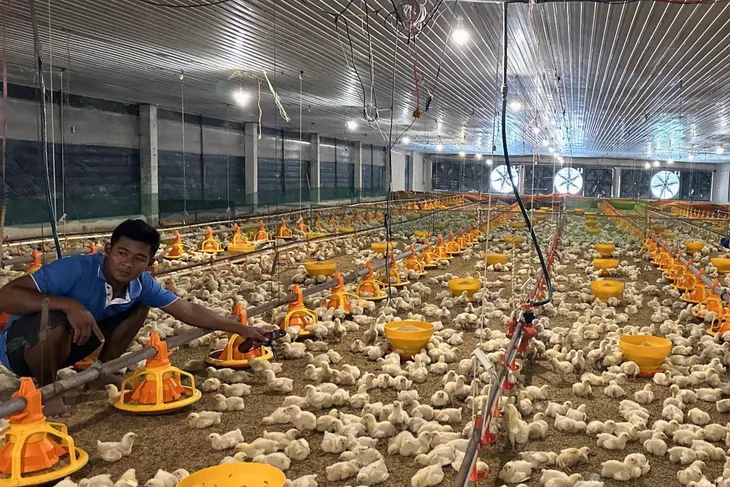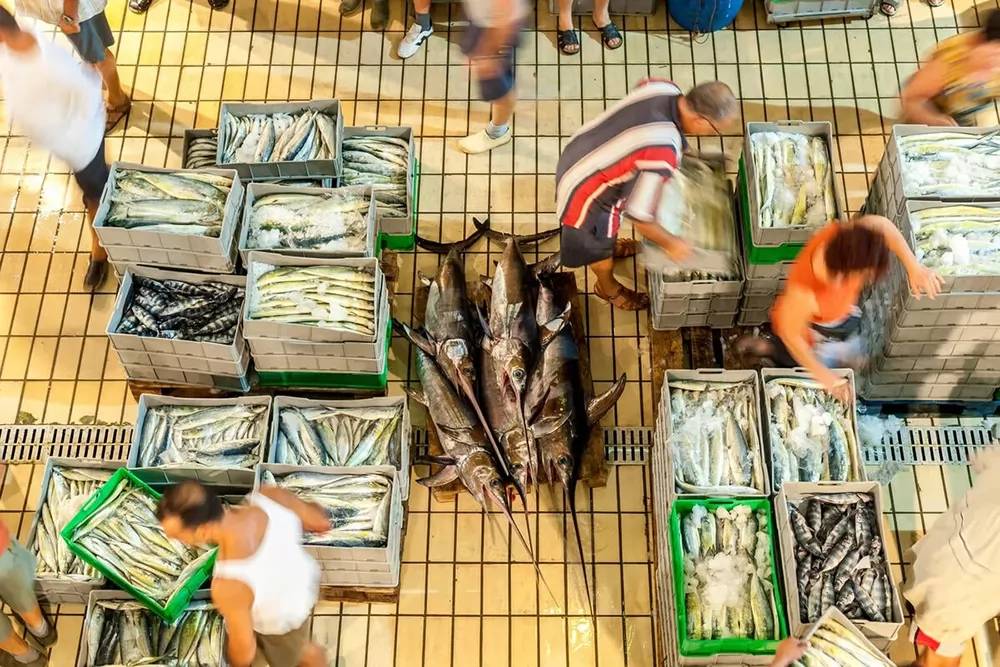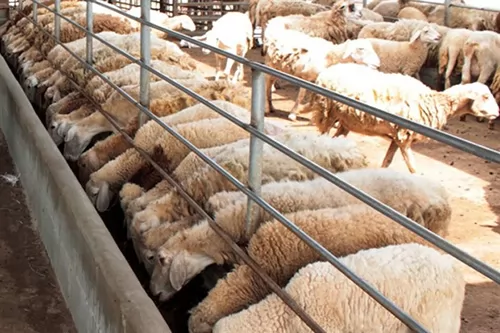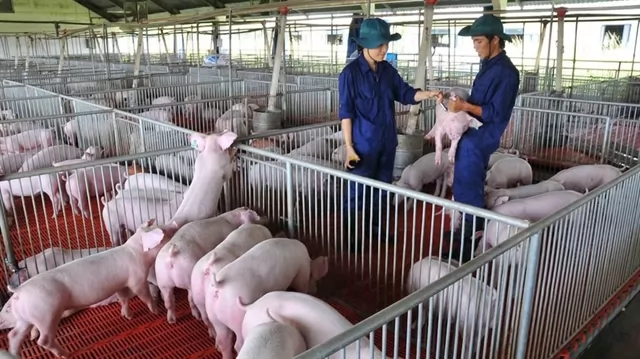Vietnam chicken farming sector grapples with surge in imports

A white-feathered chicken farm in Dong Nai Province, southern Vietnam. Many farms in Vietnam have stopped raising white-feathered chickens due to continuous losses. Photo: A Loc / Tuoi Tre
Many chicken farmers in Vietnam have suffered losses over the past three years and are on the verge of bankruptcy due to high imports.
The loss of the sector is attributed to the shortage of measures to prevent imported frozen chicken offal and by-products as well as control live chicken imports through border gates.
Binh Son Commune in Long Thanh District under Dong Nai Province, a neighbor of Ho Chi Minh City, was earlier known as the 'kingdom' of free-range chickens of the province with over 1.2 million birds, said Thanh, a local resident.
However, the low chicken prices have caused farmers to incur losses over the past two years, forcing them to scale down their flocks.
Households in the commune had raised thousands to tens of thousands of chickens but 90 percent of them have quit the job, Thanh said.
Chicken prices have plunged over the past three years, while the costs for chicken feed and medication rise annually.
As a result, farmers sustain heavy losses, a leader of the Dong Nai Animal Husbandry Association told Tuoi Tre (Youth) newspaper.
Most small-scale farms have suspended the breeding of chickens, while some large ones have outsourced to foreign direct investment enterprises.
Many large livestock companies have even scaled down their production or raised chickens by themselves for export instead of buying the products from local farmers, said Nguyen Van Ngoc, vice-chairman of the animal husbandry association in the southeastern region.
The free-range chicken prices were lower than the production costs by VND6,000-8,000 (US$0.25-0.34) per kilogram in 2022 and the first quarter of this year, and even VND13,000-16,000 ($0.6-0.7) per kilogram in February and March this year.
Meanwhile, it costs some VND29,000 ($1.2) to produce a kilogram of industrially-raised chicken but it is sold at VND23,000-24,000 ($0.98-1) per kilogram.
However, live chickens imported into the country via unofficial channels and smuggled chickens totaling 200,000-250,000 metric tons per year are not taken into account, VIPA chairman Nguyen Thanh Son said.
In other words, the volume of chicken imports accounts for 20-25 percent of the total amount of chicken consumed locally, hindering the sale of locally-produced chicken meat.
As a result, Son proposed the relevant ministries and agencies coordinate with trade associations to introduce drastic technical measures to control chicken imports to create a fair competition environment for made-in-Vietnam products.
Domestic enterprises will find it hard to survive given the influx of chicken imports, Son said, adding that Vietnam easily allows poultry products to enter the country, while domestic exporters face multiple strict requirements in importing markets.
The country has yet to have specific regulations on meat imports containing Ractopamine and Cysteamine, hormones banned in farmed animals in several countries, from 26 countries and territories, including the U.S., Australia, Canada, Brazil, Malaysia, Mexico, New Zealand, the Philippines, South Korea, and Thailand.
Meanwhile, Vietnam also bans the two hormones in cattle and poultry farming.
The country should also prohibit meat imports with Ractopamine and Cysteamine to ensure a fair and healthy business environment for local livestock and production firms.
Local breed and animal feed traders, slaughterhouses, processors, and distributors should enhance their connection to reduce costs by at least 10 percent, Tong Xuan Chinh, deputy head of the Department of Livestock Production under the Ministry of Agriculture and Rural Development, suggested.
“We also need to tighten the control over poultry products, which may fail to meet food safety requirements and harm human health," Chinh added.
Thanh Ha / Tuoi Tre News
Maybe you are interested

New FAO publication describes global fish fraud and the tools to combat it
All too often the seafood we eat is not what it says on the menu, potentially posing health and environmental risks.

Ninh Thuan to breed more sheep, goats for sale
The south-central province of Ninh Thuan, the country’s largest animal producer, is strengthening measures to breed more sheep, goats, pigs and other animals for commercial production.

Livestock industry must make haste on transformation
A report by the Department of Livestock Production and Animal Health says over 30 per cent of domestic livestock output still from small-scale, scattered farms not connected to value chains.





